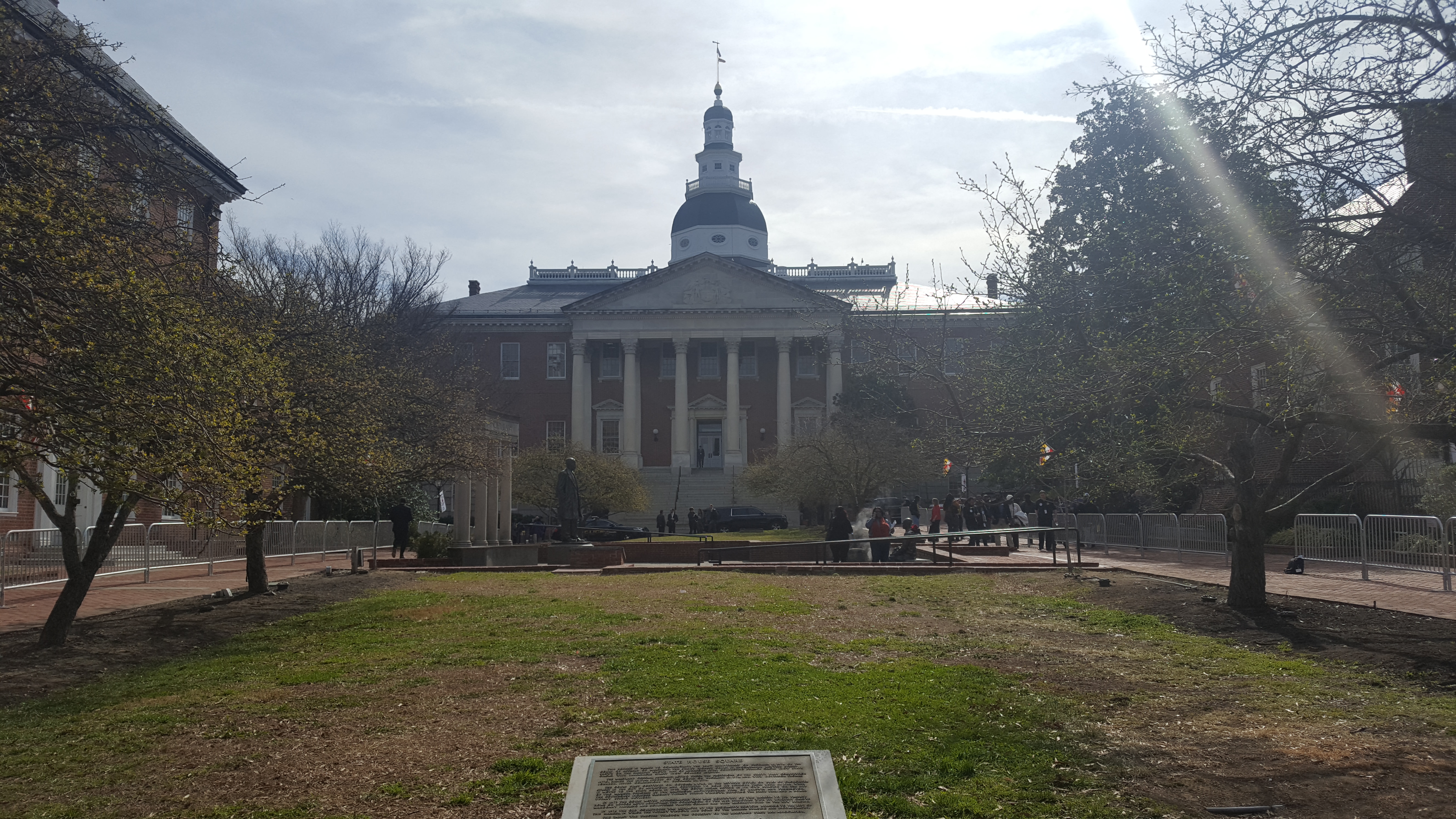
Today, the House Environment and Transportation Committee is holding a hearing on HB589, a bill to help build Maryland's compost industry by phasing in a requirement that large food waste producers (restaurants, cafeterias, schools, and large institutions) keep that food waste out of the trash if there is a compost facility that could take it. We submitted this joint testimony signed by 28 organizations in Maryland.
HB589 - Organics Recycling and Waste Diversion - Food Residuals
House Environment and Transportation Committee
February 19, 2020
Position: Favorable
Dear Chairman Barve and Members of the Committee,
The 28 groups listed below thank you for this opportunity to write in support of HB589 to phase Maryland into diverting food waste out of landfills and trash incinerators when alternatives are available. Specifically, the undersigned groups see this legislation as a driver of a local compost industry and its associated benefits.
Food waste is a persistent problem, with over 25% of the overall food supply at the retail and consumer level going uneaten and wasted. Disposing of our organic material in landfills and incinerators squanders potential benefits of compost as a climate mitigation and adaptation strategy, soil additive, and job creator. Composting turns discarded organic material into a nutrient-rich product that helps sequester carbon while improving soil health and resiliency, and employing Marylanders.
HB589 uses a phased approach to gradually require large generators of organic waste to divert their waste if facilities exist nearby that could take their waste. This allows the compost industry to build up to meet the waste generated. By tackling large generators who generally have waste contracts, this legislation efficiently focuses on waste streams that are already separated and heavily compostable. Compared to households, which generally produce less organic waste, are more likely to mix it in with other trash, and must have their waste individually collected by trucks, large generators produce and process their waste in one location and can more easily keep their organic waste separated. Focusing on large food waste generators as Maryland’s compost business sector is developing will lead to more organic waste being diverted for less investment of time and resources.
Climate: Composting is an effective tool to reduce CO2 and methane emissions, and even to proactively sequester carbon in the ground instead of emitting it into the air. When organic waste is burned in a trash incinerator, it releases CO2 into the atmosphere, and in a landfill that organic waste becomes methane. Both gases are potent greenhouse gases that contribute to climate change. Diverting organic waste to compost instead of landfilling reduces greenhouse gases by more than 50%. Compost also improves the carbon sequestration potential of soils.
When compost is added into soil, it can actually benefit stormwater management improving resiliency efforts by absorbing stormwater runoff and filtering pollutants.
Soil Health: Compost as a soil amendment also has significant improvements for soil health. Soil health has been in decline, in part due to our broken food system. We extract nutrients when we grow plants in soil, but if we do not put those nutrients back into the system, then the soil becomes depleted. Adding compost to our soil strategy replenishes the soil microbiome and improves soil health.
Healthy soils have a multitude of benefits, including protecting against desertification and soil erosion, increasing soil fertility, higher carbon content, enhancing natural soil suppressives - reducing the prevalence of disease and the resistance of the plant to the disease, and reducing the need for pesticides and fertilizers by creating a resistant, nutritious soil biome.
Job Creation: Expanding composting and local compost use could support almost 1,400 new full-time jobs in Maryland, according to a 2013 study by the Institute for Local Self Reliance. Expanding compost would support not just new and existing compost facilities, but also Maryland businesses that use compost for soil erosion control, stormwater management, green infrastructure, and other purposes. Maryland’s existing compost facilities employ 4.1 full-time equivalent jobs per 10,000 tons per year of material composted, compared to just 1.2 FTE jobs per 10,000 tons per year of material incinerated and 2.1 FTE jobs per 10,000 tons per year processed at municipal solid waste landfills. Diverting waste from incinerators and landfills to compost facilities will spur in-state construction and permanent jobs, project development, and businesses.
Prolongs Life of Landfills: Much of Maryland’s waste that is currently filling up our landfills could be composted, prolonging the life of those landfills as well as bringing all of the benefits listed above. Montgomery County’s 2017 Waste Characterization Study found that 43% of the trash generated in the county was organic waste. Prince George’s County found that 23% of the waste delivered to its landfill from commercial sources could be composted, and 28% of the waste from schools. In Baltimore City, a seasonal waste sort study in summer 2019 found that 22% of commercial waste was food scraps, yard waste, or clean wood; an NRDC analysis found that 72,348 tons of food waste are generated by large commercial businesses in Baltimore City. Diverting these compostable materials to compost facilities would significantly prolong the life of Maryland’s existing landfills.
Conclusion: Diverting waste from a trash incinerator or landfill is a potent tool that will have many benefits across Maryland, from sequestering carbon to improving soil health to spurring the local economy to prolonging the life of our existing landfills. We thank you for your consideration and urge a favorable report.
Clean Water Action
Multi-Faith Alliance of Climate Stewards of Frederick County
Sunrise Movement Baltimore
Runners4Justice
Frederick Compost Workgroup
Takoma Park Mobilization Environment Committee
Baltimore Free Farm
Echotopia LLC
Baltimore Community ToolBank
Sunrise Movement Howard County
Sugarloaf Citizens Association
Maryland Legislative Coalition
WISE
Greenbelt Climate Action Network
Unitarian Universalist Legislative Ministry of Maryland
Environmental Justice Ministry, Cedar Lane Unitarian Universalist Church
Chesapeake Physicians for Social Responsibility
Indivisible Towson
Nuclear Information and Resource Service


